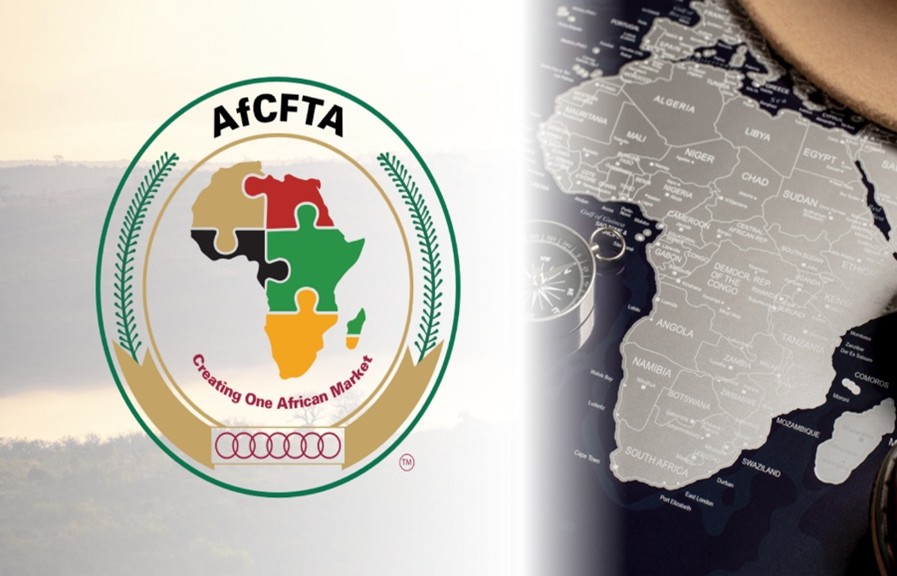Trade agreements such as the Africa Continental Free Trade Agreement (AfCFTA) are considered one of the vital pillars of South Africa’s current administration’s economic strategy, shaping market access, investment flows, and international competitiveness. While global discourse on trade has recently focused on negotiations with the United States, Canada, Mexico, and China, to mention a few, South Africa needs to look at the domestic front and examine its own trade agreements to capitalise on emerging opportunities and mitigate potential risks.
Concerning AfCFTA, the Southern African Customs Union (SACU), and the Africa Growth and Opportunity Act (AGOA) shaping the country’s trade landscape, understanding of these international trade agreements and how to leverage them are the mechanisms to navigating an increasingly complex world economy.
Trade agreements also pose several other challenges, particularly regarding compliance with international regulations. For South African businesses, especially SMEs, navigating complex legal and administrative requirements can be resource-intensive. Meeting high standards for exports, for example the stringent sanitary and phytosanitary measures in agriculture, requires significant investment in quality control and documentation. Another significant issue is the infrastructural and logistical barriers hampering trade efficiency. South Africa’s ports and border posts, notably Beitbridge Border Post, remain congested and inefficient, negatively impacting trade with neighbouring countries. Delays in customs processes and high transportation costs also limit the competitiveness of South African exports, disproportionately affecting smaller businesses looking to enter export markets.
South Africa as a leading nation on the continent has a huge opportunity to influence focus on regional infrastructure. This includes roads, bridges, airports and shipping ports that need to be focused on. The construction in these types of infrastructure will assist in the creation of jobs, growing economies and lowering unemployment rates. The cooperation of governments like that of President Cyril Ramaphosa, corporations and civil society is the key to overcoming logistical complications in transportation and transactions. When we refer to cooperation between governments, corporation, civil society we are referring to open discussion and the examination of facts. This should be followed by respect for conservation of the environment as well as the mutual benefit of how ordinary people will benefit.
Highlighting the current state of trade in Africa, Mopipi explains that the continent continues to trade more with external markets than within itself. As a result, the continent is vulnerable to global supply chain disruptions and protectionist measures originating beyond Africa. “We have not developed our value chains enough regionally to be able to offset some of the external shocks that come as a result of trading outside the continent,” she says. The AfCFTA offers an opportunity to reduce this vulnerability by strengthening regional value chains and enhancing economic resilience. Therefore, accelerated implementation of the AfCFTA Agreement is vital for stabilising African economies and reducing their dependence on external markets, Mopipi asserts. She highlights three key areas in which South Africa’s current G20 presidency can focus the G20 to make a meaningful contribution, namely infrastructure financing, the AfCFTA Adjustment Fund and policy coherence.
African economies need to develop their trade relations with each other. The continent’s economic power houses most notably South Africa, Nigeria, Ghana, Algeria, Egypt, need to be at the forefront of this integration by investing in Africa’s internal infrastructure and relaxing trade restrictions such as border tariffs. Integration of all Regional Economic Communities (RECs) to become completely inter-dependent depends on the lowering of tariffs as well as other border and trade restrictions. Free trade concerns the free movement of goods, services, and peoples across borders. For Africa and the nations within its borders such as South Africa it also means an increase in jobs and the alleviation of poverty.
When one door closes (in this case the tariffs imposed by US President Donald Trump) another has already been opened wide. This is what AfCFTA it is about. A key mechanism to spread knowledge of AfCFTA, its importance and benefits is education. South Africa and the African Union which is a bridge for AfCFTA to the G20 needs to focus on promoting investment in the proposed projects named in the extract above.
Article written by:
Yacoob Cassim
Journalist at Radio Al Ansaar






